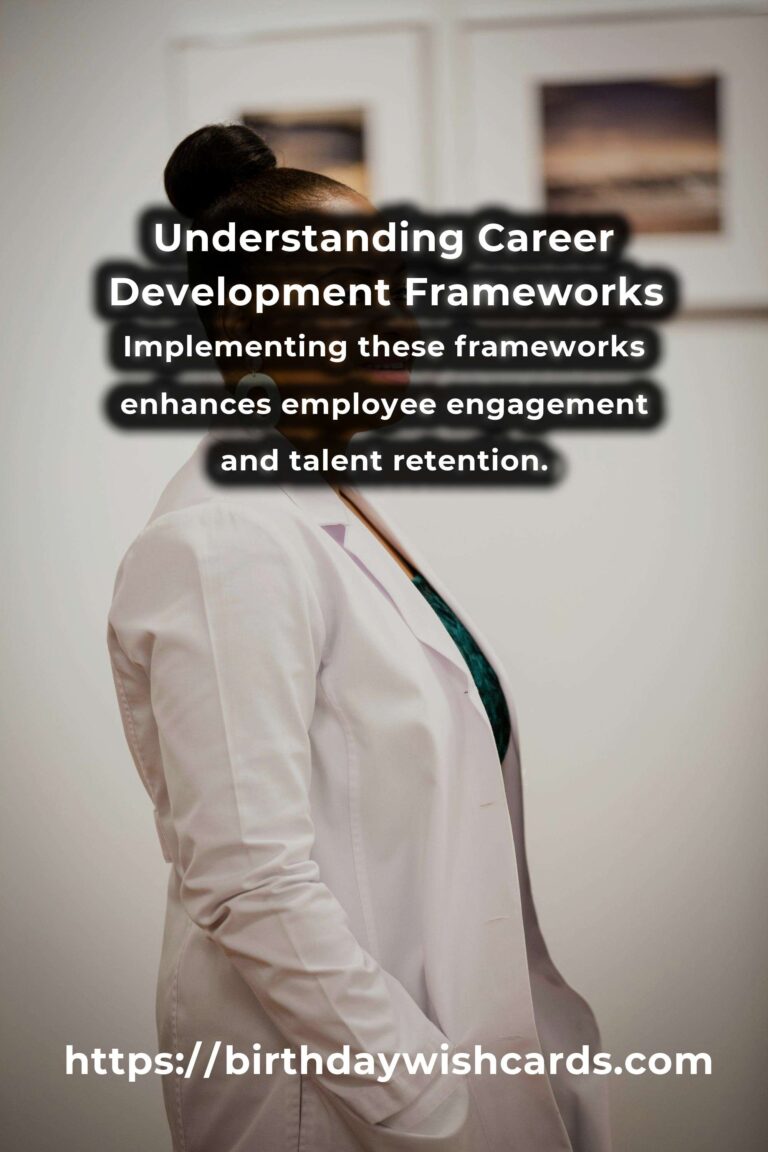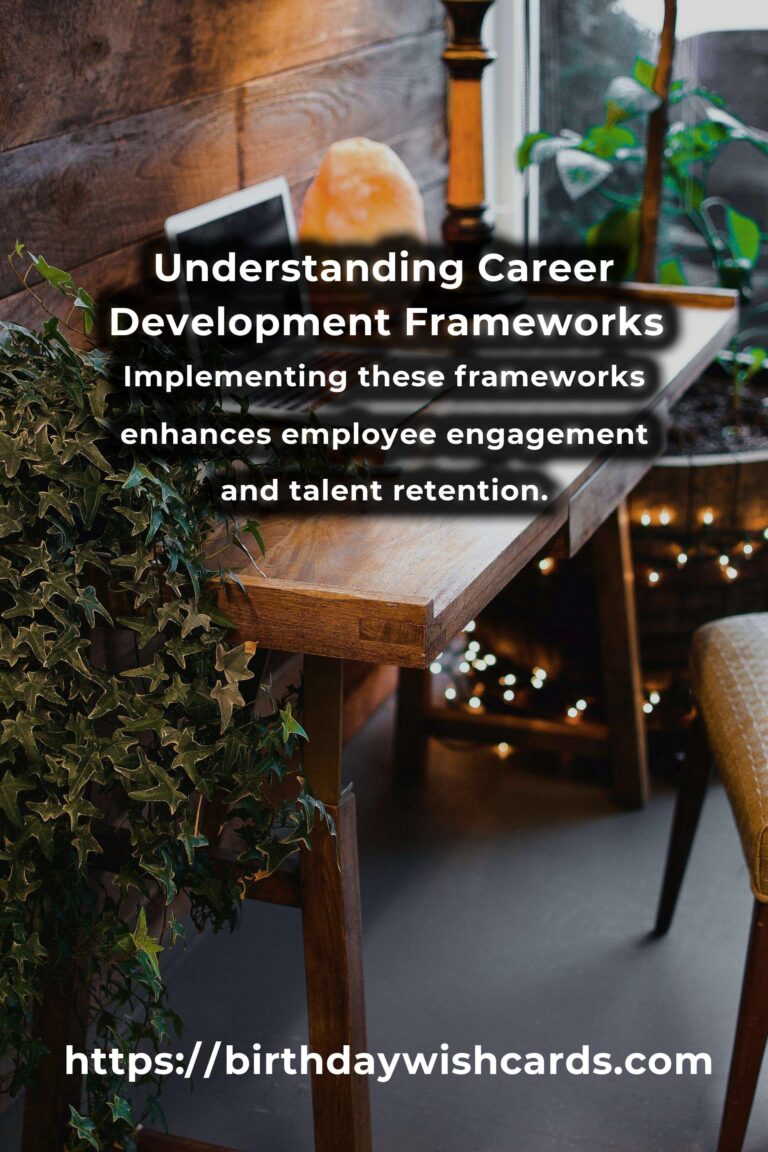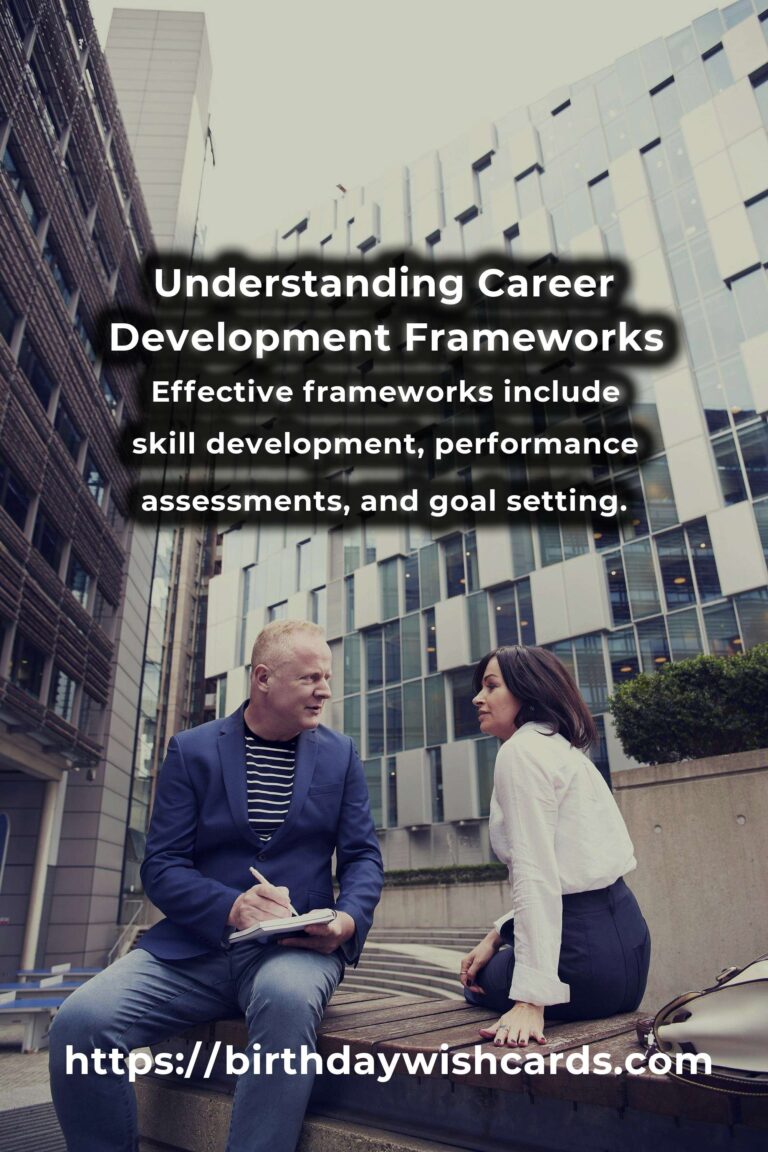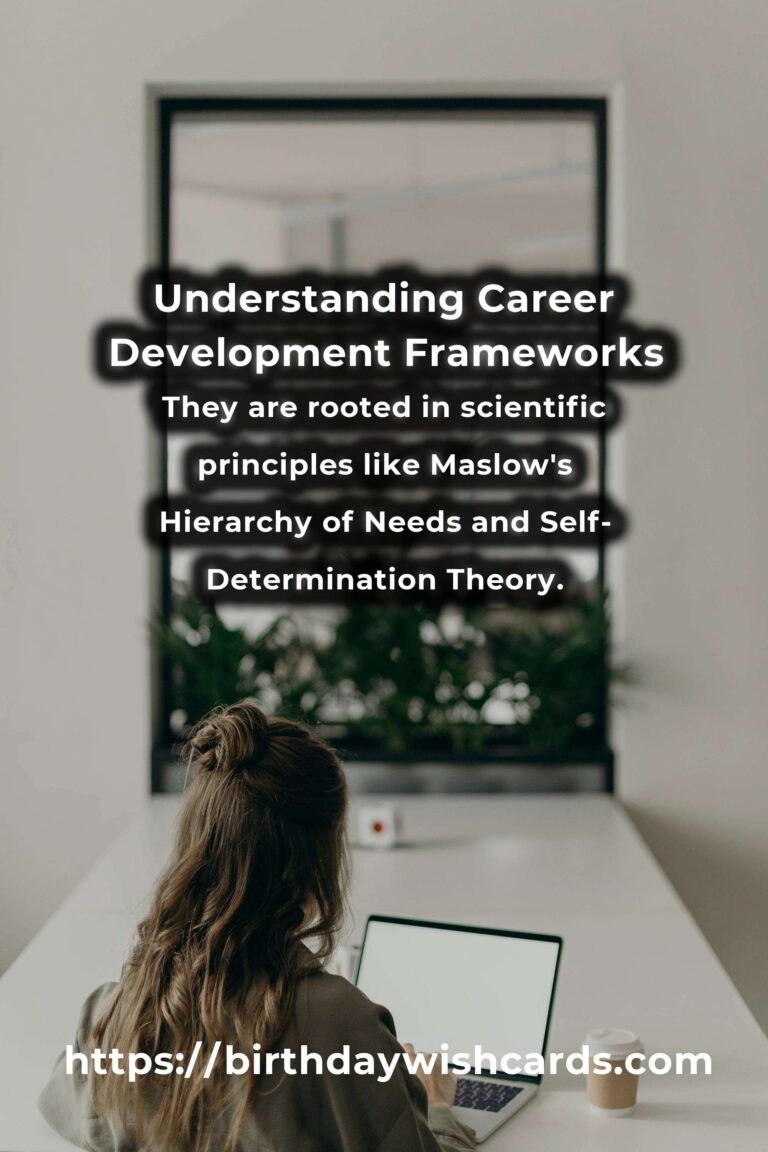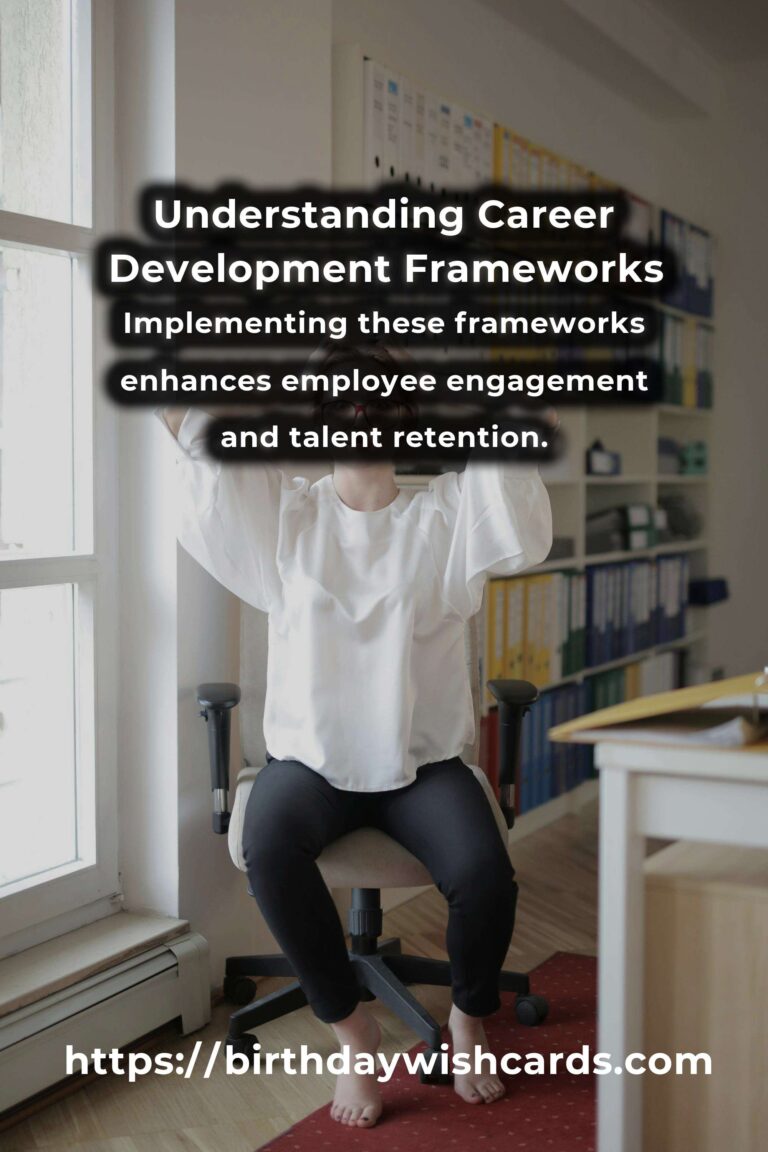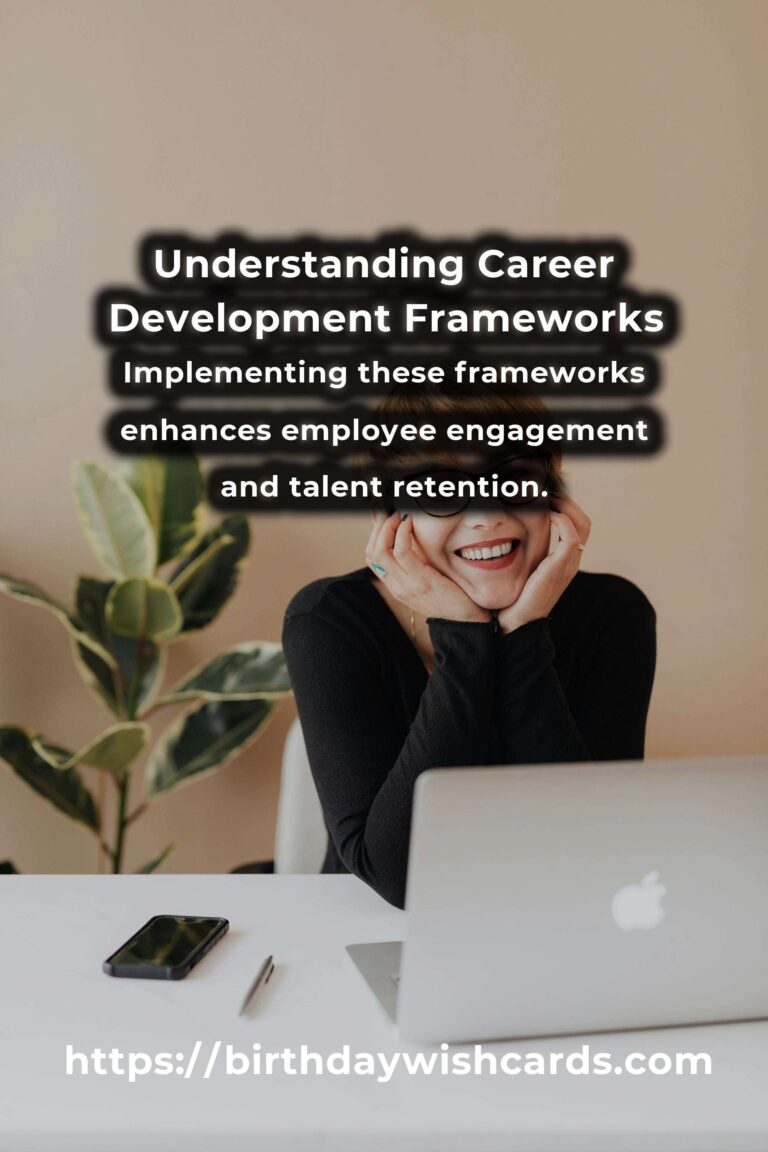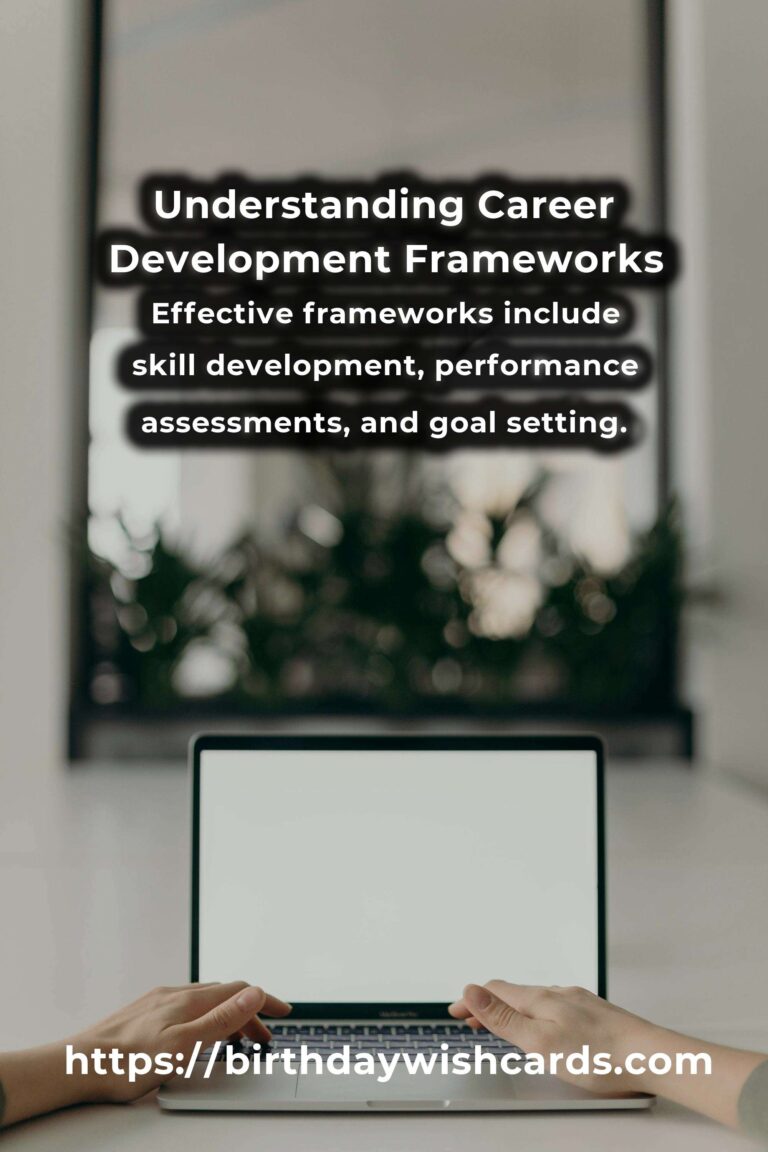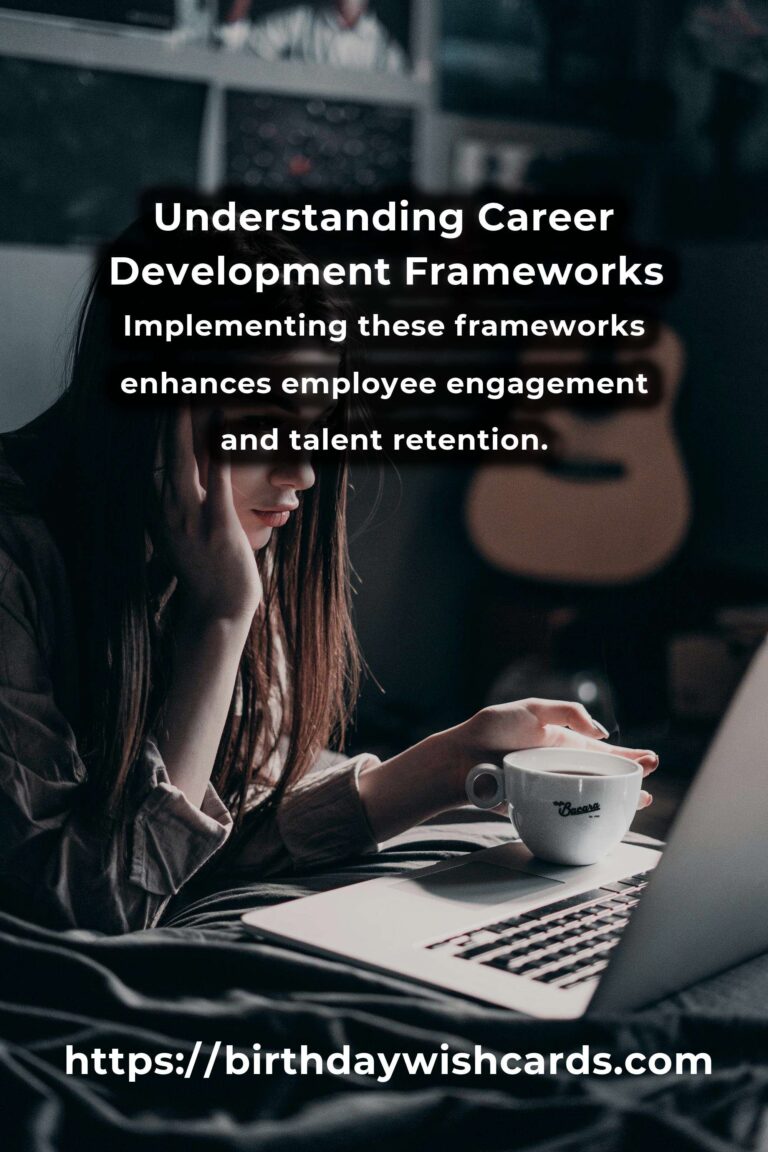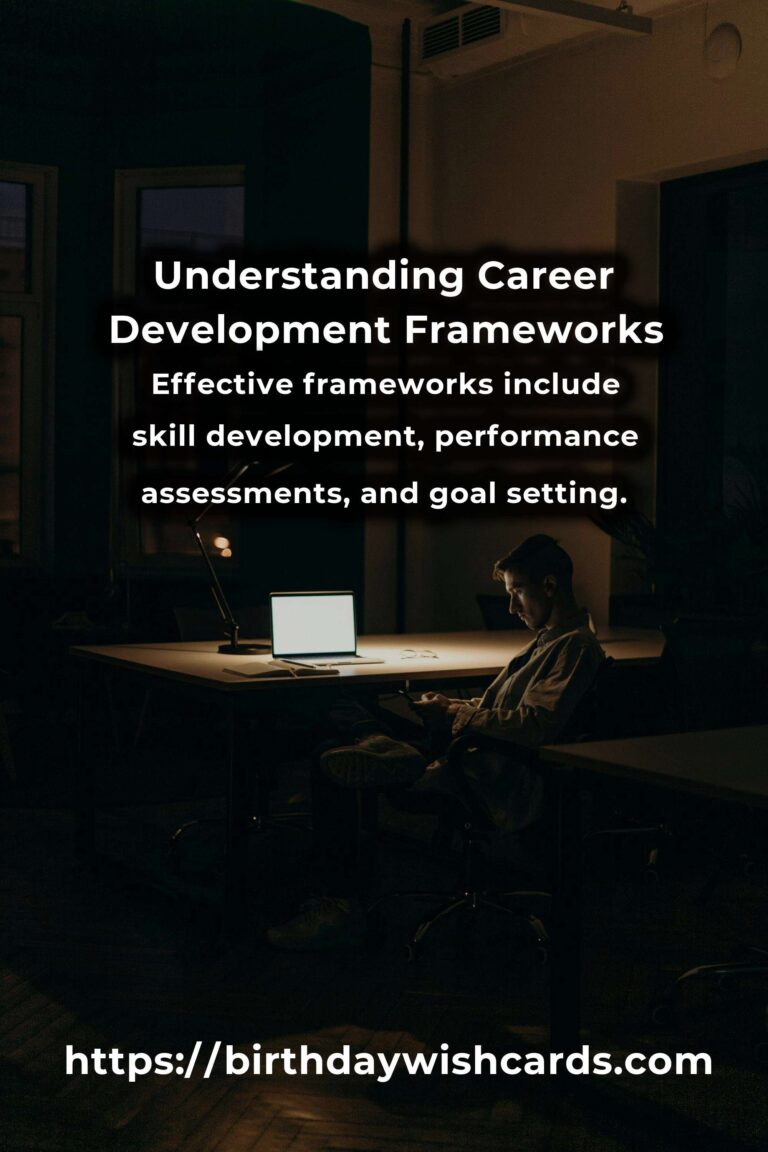
In today’s fast-paced and ever-evolving job market, the concept of career development frameworks has become more critical than ever. These frameworks serve as blueprints for individuals and organizations aiming to achieve long-term professional growth and success. By understanding the science behind these frameworks, both employees and employers can better navigate the complexities of career advancement and job satisfaction.
What Are Career Development Frameworks?
Career development frameworks are structured plans or models that guide individuals through their career journey. They typically encompass a range of components, including skill development, performance assessments, and goal setting. The primary purpose of these frameworks is to provide clarity and direction, helping individuals identify the steps needed to reach their career aspirations.
Organizations often implement career development frameworks to align employee growth with business objectives. By doing so, they ensure that staff development is in sync with the company’s strategic goals. This alignment not only boosts employee engagement and retention but also enhances overall organizational performance.
The Science Behind Career Development Frameworks
The effectiveness of career development frameworks is rooted in various scientific principles, including psychology, organizational behavior, and human resources management. Several key theories and models contribute to the design and implementation of these frameworks:
1. Maslow’s Hierarchy of Needs
Maslow’s Hierarchy of Needs is a psychological theory that suggests individuals are motivated by a series of hierarchical needs, ranging from basic physiological needs to self-actualization. Career development frameworks address these needs by providing opportunities for skill enhancement, recognition, and personal growth.
2. Self-Determination Theory
Self-determination theory emphasizes the importance of intrinsic motivation in achieving personal and professional goals. Career development frameworks that incorporate elements of autonomy, competence, and relatedness can foster an environment where individuals are motivated to pursue their career paths with enthusiasm and commitment.
3. The 70-20-10 Model
The 70-20-10 model is a learning and development framework that posits individuals acquire knowledge through a combination of experiences (70%), social interactions (20%), and formal education (10%). This model is often integrated into career development frameworks to ensure a balanced approach to skill acquisition and professional growth.
Components of Effective Career Development Frameworks
An effective career development framework typically comprises several key components that cater to both individual and organizational needs:
1. Skill Development and Training
Continuous skill development is a cornerstone of career advancement. Effective frameworks offer structured training programs, workshops, and mentorship opportunities to help individuals enhance their competencies and remain competitive in the job market.
2. Performance Assessments
Regular performance assessments provide valuable feedback to individuals, allowing them to identify strengths and areas for improvement. These assessments are crucial for setting realistic career goals and aligning individual performance with organizational expectations.
3. Goal Setting and Career Planning
Goal setting is a fundamental component of career development frameworks. By establishing clear, achievable objectives, individuals can chart a course for their career journey. Career planning sessions and tools, such as individual development plans (IDPs), further support this process.
The Benefits of Implementing Career Development Frameworks
When effectively implemented, career development frameworks offer numerous benefits to both employees and organizations:
1. Enhanced Employee Engagement
Employees who have access to well-structured career development frameworks are more likely to feel engaged and motivated. This increased engagement leads to higher productivity and job satisfaction.
2. Improved Talent Retention
Organizations that invest in career development are more successful in retaining top talent. Employees are less likely to seek opportunities elsewhere when they perceive growth and advancement opportunities within their current workplace.
3. Alignment with Business Goals
Career development frameworks ensure that employee growth is aligned with the organization’s strategic objectives. This alignment fosters a culture of continuous improvement and adaptability, driving business success.
Conclusion
The science behind career development frameworks underscores their importance in today’s competitive job market. By leveraging psychological theories and organizational behavior principles, these frameworks provide a structured approach to professional growth. Whether you are an individual seeking to advance your career or an organization looking to enhance employee development, understanding and implementing effective career development frameworks can be a game-changer.
Career development frameworks provide clarity and direction for professional growth. They are rooted in scientific principles like Maslow’s Hierarchy of Needs and Self-Determination Theory. Effective frameworks include skill development, performance assessments, and goal setting. Implementing these frameworks enhances employee engagement and talent retention. Career development frameworks align individual growth with organizational goals.
#CareerDevelopment #ProfessionalGrowth #EmployeeEngagement #SkillDevelopment #CareerPlanning


